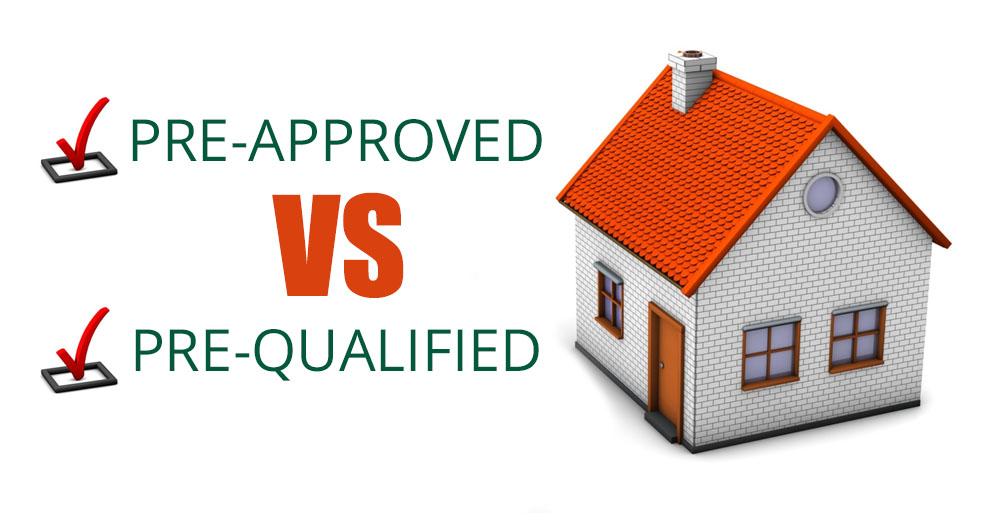Pre-Qualified and Pre-Approved Loans
Read latest blogs and articles from Housystan

The Information mentioned here was last updated on:
29/1/2026Understanding Pre-Qualified and Pre-Approved Loans
When you're in the market for a loan, whether it's to buy a house or a car, you'll likely hear the terms "pre-qualified" and "pre-approved" thrown around quite a bit. But what do they really mean, and how do they affect your borrowing journey? Understanding the difference between being pre-qualified and pre-approved can save you time and provide a clearer roadmap as you navigate the lending process.
What is a Pre-Qualified Loan?
- Verified Tenants/Buyers
- Unlimited Property Listing
- Zero subscription/charges fee
Pre-qualification is an initial step in the loan application process. Think of it as a sneak peek into your borrowing capacity. It’s when a lender evaluates your financial situation based on the information you provide. This step gives you a rough idea of how much money you might be eligible to borrow and at what potential interest rate.
Key Features of Pre-Qualification:
- Informal Assessment: Usually involves a simple process where you submit financial details such as your income, debts, and assets.
- No Credit Check Required: Most lenders perform a soft credit pull, meaning it won't affect your credit score.
- Quick Process: Can often be completed online in just a few minutes.
- Non-Binding: The offer is not guaranteed or binding. It’s more of an estimate based on unverifiable data that you provide.
Pre-qualification is a good starting point, especially for those who are exploring their options and aren't ready to commit to a particular lender. It's helpful in understanding what you might afford and narrowing down your options.
What is a Pre-Approved Loan?
Pre-approval takes the loan process a step further and involves a more thorough evaluation of your financial situation. Here, the lender actually verifies your financial data to make a more firm commitment about the loan they’re willing to offer you.
Key Features of Pre-Approval:
- Formal Assessment: Requires extensive documentation, such as tax returns, pay stubs, and bank statements.
- Credit Check: Involves a hard credit inquiry, which can temporarily affect your credit score.
- Conditional Commitment: Provides a conditional commitment from the lender for a specific amount and interest rate.
- Time-Consuming: The process takes longer than pre-qualification, sometimes a few days to a couple of weeks.
Pre-approval is especially valuable because it signals to sellers that you're a serious and qualified buyer. In competitive markets, being pre-approved can give you a significant advantage over others who are not.
Key Differences Between Pre-Qualification and Pre-Approval
Both processes provide insight into your potential borrowing capabilities, but there are clear distinctions:
- Level of Commitment: Pre-qualification is an estimation; pre-approval is a conditional commitment.
- Impact on Credit Score: Pre-qualification does not impact your credit score; pre-approval involves a hard inquiry that can affect your score.
- Verification of Information: Pre-qualification is based on self-reported information; pre-approval requires documentation.
To put it simply, pre-qualification is like an educated guess, while pre-approval is more like a conditional green light.
Why Pre-Approval Matters in a Competitive Market
Having a pre-approval letter in hand when house shopping can streamline your purchasing process and possibly strengthen your negotiating power. Here’s why it matters:
- Shows Serious Intent: Signals to sellers that you are ready to move forward with a purchase, potentially giving you leverage in negotiations.
- Faster Closing Process: Since much of the paperwork and verification is already handled, the loan process is typically quicker once you find a property.
- Budget Clarity: Clearly outlines how much you can borrow, allowing you to search for homes within your price range.
Steps to Get Pre-Qualified
1. Choose a Lender: Start by researching and selecting a few lenders you are interested in.
2. Provide Financial Information: Fill out an online form or speak with a lender, providing details about your income, assets, and debts.
3. Receive Your Estimate: Based on the provided information, the lender will give you an estimate of borrowing capacity.
Steps to Get Pre-Approved
1. Submit a Formal Application: Pick a lender and submit a more detailed loan application.
2. Provide Documentation: Be ready to supply documents like your income verification, bank statements, and credit history.
3. Credit Check: Allow the lender to perform a hard credit check.
4. Receive Pre-Approval Letter: If approved, you’ll receive a letter stating the specific amount and terms you're qualified for.
Understanding Credit Impact
Your credit score is a crucial element in both pre-qualification and pre-approval. Here's how it plays its part:
- Soft vs. Hard Inquiries: Only pre-approval affects your credit score as it’s a hard inquiry.
- Influence on Loan Rates: A higher credit score can lead to better terms and lower interest rates.
How Long Do Pre-Qualifications and Pre-Approvals Last?
- Pre-Qualification Duration: Often valid for about 30 to 60 days.
- Pre-Approval Duration: Typically remains valid for 60 to 90 days, but it’s important to check with your lender for specific timeframes.
Final Thoughts on Navigating the Loan Process
Understanding the distinction between pre-qualified and pre-approved loans not only simplifies your home buying journey but also strengthens your position in the market. By leveraging these two steps wisely, you'll be more informed, more credible to sellers, and ultimately more prepared to secure your dream home.
For more information on navigating loans and the home buying process, explore related articles on our [Loans & Mortgages]() page.
This knowledge will arm you with the confidence needed to move through the loan process smoothly, eliminating stress and ensuring that you're poised to make informed financial decisions. Keep these insights in mind as you proceed, and utilize pre-qualification and pre-approval to your advantage, ensuring a seamless home-buying experience.